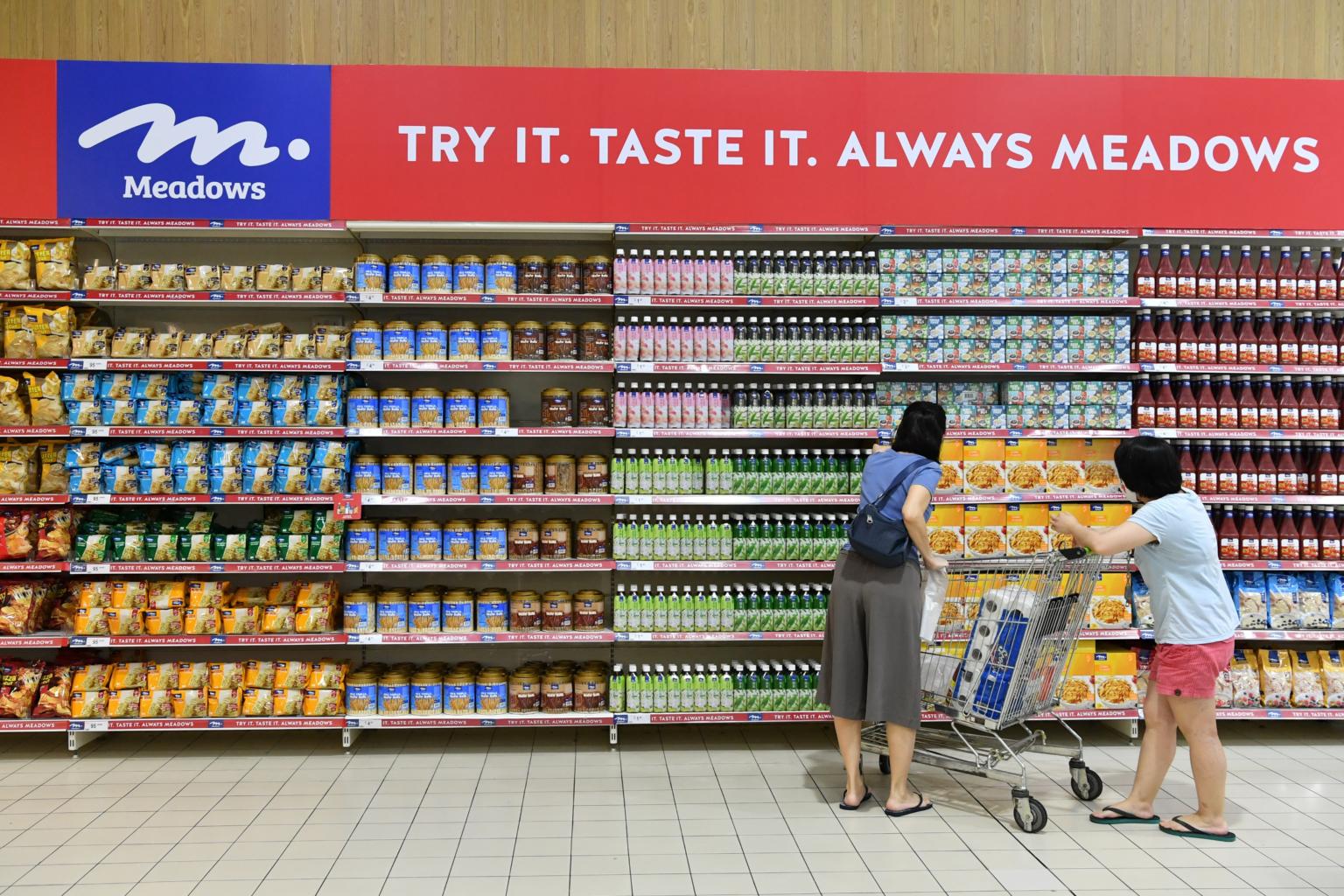House brands gain popularity in economic slowdown
Sign up now: Get ST's newsletters delivered to your inbox

Dairy Farm Group's Meadows brand has become the most popular brand in Giant supermarkets.
ST PHOTO: CHONG JUN LIANG
Demand for supermarket house brand items has soared amid the economic slowdown, as consumers tighten their purse strings and grocers expand their cut-price offerings beyond daily essentials.
Dairy Farm Group's Meadows brand, which was launched last month, has become the most popular brand in Giant supermarkets, beating leading names such as Nescafe and Coca-Cola, the company said yesterday. Meadows, marketed as the group's first exclusive brand, has about 200 products spanning categories from fresh produce to snacks. It is available at all Dairy Farm stores, including Cold Storage, Market Place and 7-Eleven.
Dairy Farm's chief executive officer for its South-east Asia food business Chris Bush said yesterday that Giant's own label remains the cheapest option, while Meadows is positioned as "slightly higher quality, benchmarked to the leading brands, but at 20 per cent cheaper".
A Dairy Farm spokesman said the pandemic has led to an overall double-digit increase in the sales of its grocery retail business.
"Demand for our Meadows range of products has grown proportionately with this increase," the spokesman said, adding that the brand's nuts and potato chip range is a top seller.
At FairPrice, sales of house brand products increased by 25 per cent between March last year - when it froze the prices of 100 popular items - and June this year, compared to the same 15-month period prior.
The supermarket chain is continuing to add to its range of 2,000 house brand products, and is also expanding its exclusive offerings, said FairPrice Group's chief executive for Own Brands and Food Solutions Business Grace Chua.
This includes the recently-launched SmartChoice label, which includes household cleaning products and adult diapers. More products will be introduced by early next year, Ms Chua added.
Sales of online grocer RedMart's house brand products, sold under the RedMart Private Label brand, have risen steadily this year, with monthly sales now 60 per cent higher than in January, said Lazada Singapore's head of grocery Richard Ruddy.
Working directly with manufacturers helped to cushion RedMart against global supply shocks in the early stages of the coronavirus outbreak, he added, as the company was able to ensure a steady supply for most of its Private Label products.
RedMart is also working on expanding its house brand range of 360 products to include more cooking and baking essentials.
Dr Seshan Ramaswami, associate professor of marketing education at Singapore Management University, noted that house brands give supermarkets better profit margins than other branded products.
Consumers benefit too, as house brands are generally of reasonable quality, he added. "When economic conditions are tough, as they are now, many households shift to house brands to save money."
This poses a long-term risk to leading brands, as consumers may not switch back, he added.
Housewife Linda Wee, 42, said she opts for house brands as the savings can be substantial. "I used to avoid them for food, but the quality and packaging seem to have gotten better."


